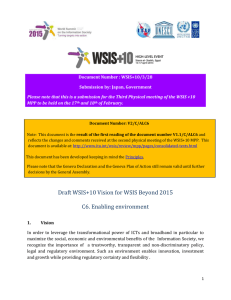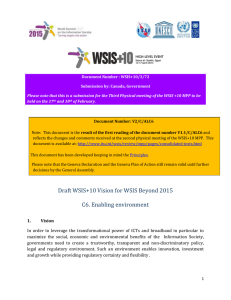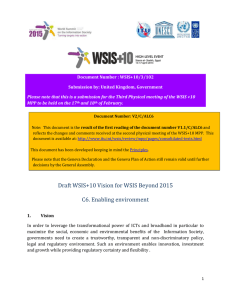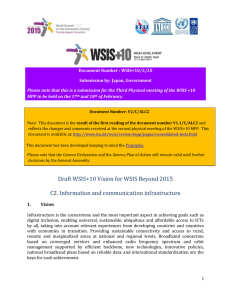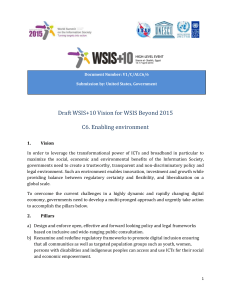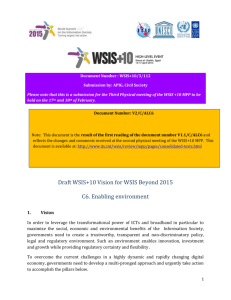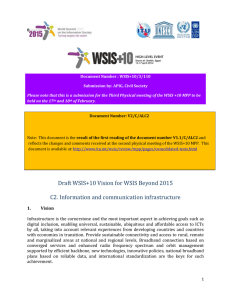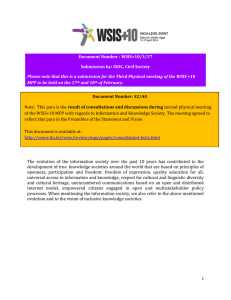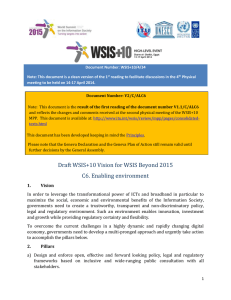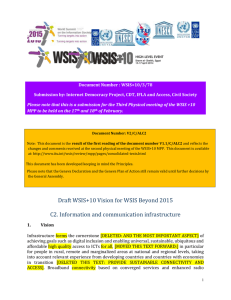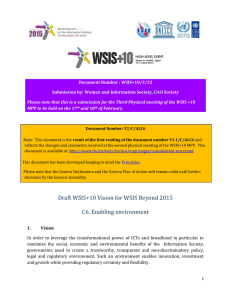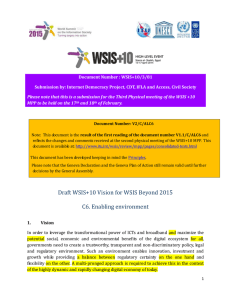Document 13472430
advertisement
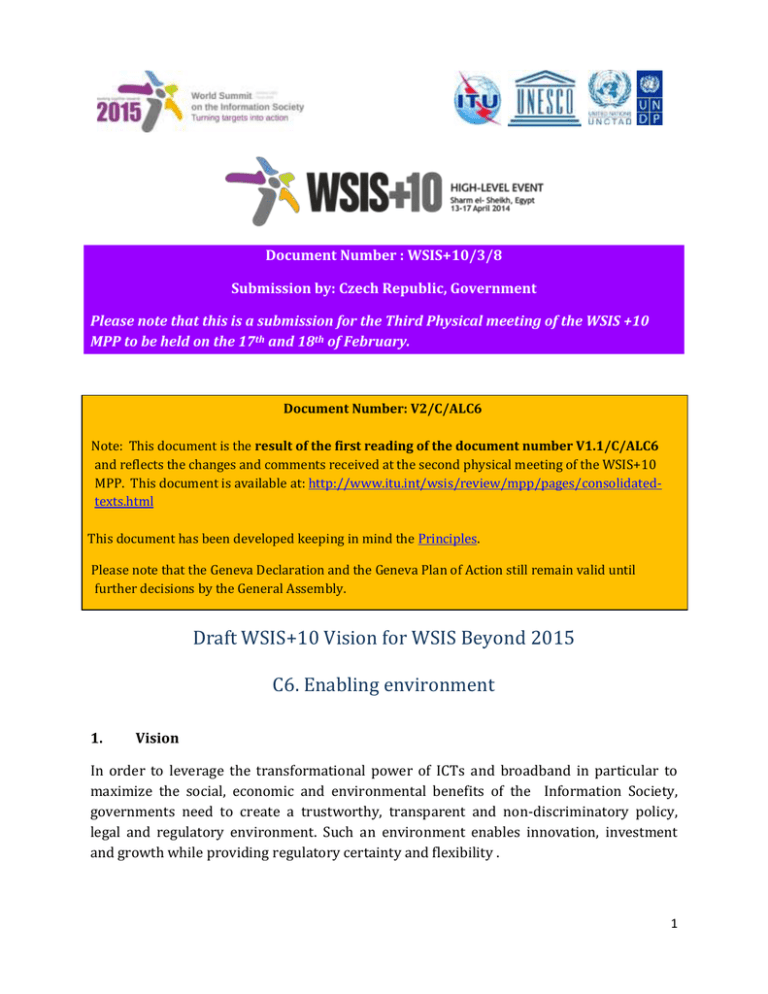
Document Number : WSIS+10/3/8 Submission by: Czech Republic, Government Please note that this is a submission for the Third Physical meeting of the WSIS +10 MPP to be held on the 17th and 18th of February. Document Number: V2/C/ALC6 Note: This document is the result of the first reading of the document number V1.1/C/ALC6 and reflects the changes and comments received at the second physical meeting of the WSIS+10 MPP. This document is available at: http://www.itu.int/wsis/review/mpp/pages/consolidatedtexts.html This document has been developed keeping in mind the Principles. Please note that the Geneva Declaration and the Geneva Plan of Action still remain valid until further decisions by the General Assembly. Draft WSIS+10 Vision for WSIS Beyond 2015 C6. Enabling environment 1. Vision In order to leverage the transformational power of ICTs and broadband in particular to maximize the social, economic and environmental benefits of the Information Society, governments need to create a trustworthy, transparent and non-discriminatory policy, legal and regulatory environment. Such an environment enables innovation, investment and growth while providing regulatory certainty and flexibility . 1 To overcome the current challenges in a highly dynamic and rapidly changing digital economy, governments need to develop a multi-pronged approach and urgently take action to accomplish the pillars below. 2. Pillars a) Design and enforce open, effective and forward looking policy, legal and regulatory frameworks based on inclusive and wide-ranging public consultation with all stakeholders. b) Ensure effective and fair competition especially by liberalization of the markets,promote transparency and create frameworks that nurture innovation while stimulating investment, including foreign direct investment, for the roll-out of infrastructure (including broadband) and the development and take up of eapplications and services. c) d) e) Recognizing the economic potential of ICTs for Small and Medium-Sized Enterprises (SMEs), contribute to increasing their competitiveness by streamlining administrative procedures, facilitating their access to capital, reducing the cost of doing business and enhancing their capacity to participate in ICT-related projects. f) Promote the development and adoption of appropriate regional and international standards that are required to foster interoperability and to facilitate the flow of information and services across borders and address the concerns of various ICT providers and users. g) Raise awareness of the benefits and risks of technological progress and consider regulatory measures to address issues such as personal and data protection, consumer rights, and protection of minors and vulnerable segments of the society, and collaborate at the regional and international levels. 3. Targets 2 a) [Target 1: Empower governments to mitigate the challenges of the Information Society. By 2020, all countries should empower the government agency(ies) in charge of ICT regulation to adopt and effectively enforce relevant regulations. b) Target 2: Make broadband policy universal. By 2020, all countries should have a national broadband plan or strategy or include broadband in their Universal Access/Service Definitions. c) Target 3: Boost the competitiveness of broadband markets. By 2020, all countries should have effective competition in the main broadband market segments (mobile, DSL, cable modem, fixed wireless, leased lines, Internet services, international gateways and Voice over IP (VoIP).) 3
